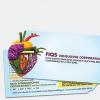Some history from the 1980's
I started my beverage career in a regional brewery back in the 1980's. Our brewery predominately used recycled glass. We had contracts with various brokers that recycled glass and they shipped the glass to us. We also had a line of 12 oz returnable and 16 oz returnable bottles.
We would wash the bottles in a machine called a soaker. It had rinse water pockets and hot caustic solution pockets plus several rinse water pockets and a rinse water jet. The bottles were pushed into carrier pockets. Each carrier has 20 plus pockets and the bottles carriers would go up and down through the various pockets. After washing, the bottles were conveyed to the filler. Prior to filling, we had an empty bottle inspector camera system set up which would take a photo of inside the bottle as well and the finish on the bottle and reject any bottle that had foreign matter and/or glass fragments plus any bottle that had a broken finish. It was calibrated daily and challenged daily.
Then the bottle companies started embossing bottles with the brand name and that put an end to using the recycled bottles. From what I can remember, the returnable bottles ended in 2009 for our place.
I feel the bottle embossing would prevent most places from using recycled glass unless their volume was enormous and had a good logistics system.
Edited by lorlandini, 08 May 2023 - 04:24 PM.















